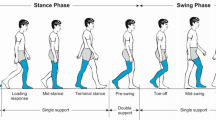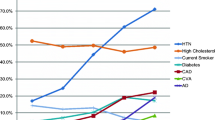Abstract
Objectives
The aim of this study was to determine the prevalence of Motoric Cognitive Risk (MCR) syndrome, describe associated risk factors and to determine the risk of progression to cognitive impairment after three years of follow-up, in a sample of Mexican older adults.
Design
A prospective panel study of health and aging in Mexico.
Setting and participants
Baseline and follow-up information was obtained from the Mexican Health and Aging Study’s 2012 and 2015 waves. A total of 726 subjects aged 60 years or older with normal cognition at baseline were classified into 4 groups: 1) with MCR, 2) with memory complaint only, 3) with slow gait speed only and, 4) without MCR. Cox regression analysis controlling for confounder factors was performed to determine the risk of progression to cognitive impairment in the MCR group.
Measures
Data such as gait speed, functional status and cognitive performance (standardized by age and sex in Mexican population) was collected.
Results
MCR prevalence was 14.3%. When compared with non-MCR subjects, the presence of MCR was associated with older age (p<0.01), lower educational status (p=0.05), having two or more comorbidities (p<0.05) and diabetes mellitus diagnosis (p<0.05). At follow-up and after adjusting for confounders, MCR was associated with a 2.4-fold increased risk (95% CI: 1.28-4.26, p=.000) of cognitive impairment.
Conclusions
MCR syndrome increases the risk of cognitive impairment in Mexican older adults. Simple measurements such as gait evaluation in subjects with memory complaints could allow early identification of those at risk of developing cognitive impairment.

Similar content being viewed by others
References
Instituto Nacional de Estadística, Geografía e Informática. Estadísticas a propósito del día internacional de las personas de la tercera edad. INEGI. https://doi.org/www.inegi.org.mx/saladeprensa/aproposito/2014/adultos0.pdf. Accessed 11 September 2017
Organización Panamericana de la Salud. Encuesta Multicéntrica, Salud Bienestar y Envejecimiento (SABE) en América Latina y el Caribe, 2001. https://doi.org/envejecimiento.csic.es/documentos/documentos/paho-salud-01.pdf. Accessed 11 September 2017
Mejía S, Miguel-Jaimes A, Villa A, Ruiz L, Gutiérrez LM. Cognitive impairment and associated factors in older adults in Mexico. Salúd Publica Mex 2007;49 suppl 4, 475-481
Solomon PR, Murphy CA. Should we screen for Alzheimer’s disease? A review of the evidence for and against screening Alzheimer’s disease in primary care practice. Geriatrics 2005;60:26–31
Prince M, Acosta D, Ferri CP, et al. Dementia incidence and mortality in middle-income countries, and associations with indicators of cognitive reserve:a 10/66 Dementia Research Group population-based cohort study. Lancet 2005;7;380(9836):50-8
Bush C, Kozak J, Elmslie T. Screening for cognitive impairment in the elderly. Can Fam Physician 1997;43:1763–8
Doraiswamy PM, Steffens DC, Pitchumoni S, et al. Early recognition of Alzheimer’s disease:what is consensual? What is controversial? What is practical? J Clin Psychiatry 1998;59 Suppl 13:6–18
Verghese J, Wang C, Lipton RB, et al. Motoric cognitive risk syndrome and the risk of dementia. J Gerontol A Biol Sci Med Sci 2013;68:412–18
Montero M, Bergman H, Phillips NA, et al. Dual-tasking and gait in people with mild cognitive impairment. The effect of working memory. BMC Geriatr 2009;9:41
Wong R, Espinoza M, Palloni A. Adultos mayores mexicanos en contexto socioeconómico amplio:salud y envejecimiento. Salud Pública Mex 2007;49:s436–s447.
Wong R, Michaels A, Palloni A. Cohort Profile:The Mexican Health and Aging Study (MHAS). Int J Epidemiol 2017;1;46(2):e2
Wolfe N, Imai Y, Otani C, et al. Criterion validity of the cross-cultural cognitive examination in Japan. J Gerontol 1992;47:289–91
Mejía S, Wong R, Michaels A. Normative and standardized data for cognitive measures in the Mexican Health and Aging Study. Salud Pública Mex 2015;57:s90–s96
Jorms AF, Scott R, Cullen JS, et al. Performance of the Informant Questionnaire on Cognitive Decline in the Elderly (IQCODE) as a screening test for dementia. Psychol Med 1991;21(3):785–90
Pérez MU, Sánchez N, González M, et al. Sarcopenia prevalence using simple measurements and population-based cutoff values. J Lat Am Geriatr Med 2016;2(1):8–13
Lawton MP, Brody EM. Assessment of older people:self-maintaining and instrumental activities of daily living. The Gerontologist 1969;9:179–86
Dorantes G, Ávila JA, Mejía S, et al. Factores asociados con la dependencia funcional en los adultos mayores:un análisis secundario del Estudio Nacional sobre Salud y Envejecimiento en México. Rev Panam Salud Pública 2001;22:1–11
Aguilar SG, Fuente A, Ávila JA, et al. Validez y confiabilidad del cuestionario del ENASEM para la depresión en adultos mayores. Salud Pública Mex 2007;49:256–62
Kumai K, Meguro K, Kasai M, et al. Neuroepidemiologic and Neurobehavioral Characteristics of Motoric Cognitive Risk Syndrome in an Old-Old Population:The Kurihara Project. Dement Geriatr Cogn Disord Extra 2016;6:176–82
Verghese J, Annweiler C, Ayers E, et al. Motoric cognitive risk syndrome:multicountry prevalence and dementia risk. Neurology 2014;83:718–26
Lord S, Galna B, Verghese J, et al. Independent domains of gait in older adults and associated motor and nonmotor attributes:validation of a factor analysis approach. J Gerontol A Biol Sci Med Sci Jul; 2013;68(7):820–7
Callisaya ML, Blizzard L, McGinley JL, et al. Sensorimotor factors affecting gait variability in older people-a population-based study. J Gerontol A Biol Sci Med Sci Apr; 2010;65(4):386–92
Verghese J, Noone ML, Johnson B, et al. Picture-based memory impairment screen for dementia. J Am Geriatr Soc Nov; 2012;60(11):2116–20
Goldman R, Grossman M. Update on Apraxia. Curr Neurol Neurosci Rep 2008;8(6):490–96
Sturman DA, Moghadamm B. The Neurobiology of Adolescence:Changes in brain architecture, functional dynamics, and behavioral tendencies. Neurosci Biobehav Rev 2011;35(8):1704–12
Meyer JS, Barron DW. Apraxia of gait:A clinico-physiological study. Brain 1960;83(2):261–84
Doi T, Verghese J, Shimada H, et al. Motoric Cognitive Risk Syndrome:Prevalence and Risk Factors in Japanese Seniors. J Am Med Dir Assoc 2015;16:1103.e21-25
Gonzales JU, James CR, Yang HS, et al. Different cognitive functions discriminate gait performance in younger and older women:A pilot study. Gait Posture 2016;50:89–95
Economou A, Papageorgiou S, Karageorgiou C. Working-delayed memory difference detects mild cognitive impairment without being affected by age and education. J Clin Exp Neuropsychol 2006;28:528–35
Albert MS, Moss MB, Tanzi R, Jones K. Preclinical prediction of AD using neuropsychological tests. J Int Neuropsychol Soc Jul; 2001;7(5):631–9
Biessels GJ, Strachan MW, Visseren FL, et al. Dementia and cognitive decline in type 2 diabetes and prediabetic stages:towards targeted interventions. Lancet Diabetes Endocrinol 2014;2:246–e255
Callisaya ML, Ayers E, Birzilai N, et al. Motoric Cognitive Risk Syndrome and Falls Risk:A Multi-Center Study. J Alzheimers Dis 2016;53(3):1043–52
Hajjar I, Yang F, Sorond F, et al. A novel aging phenotype of slow gait, impaired executive function, and depressive symptoms:relationship to blood pressure and other cardiovascular risks. J Gerontol A Biol Sci Med Sci 2009;64(9):994–1001
Lampinen P, Heikkinen E. Reduced mobility and physical activity as predictors of depressive symptoms among community-dwelling older adults:an eight-year followup study. Aging Clin Exp Res 2003;15(3):205–11
Kueper JK, Speechley M, Lingum NR, et al. Motor function and incident dementia:a systematic review and meta-analysis. Age Ageing 2017;46:729–38
Author information
Authors and Affiliations
Corresponding author
Rights and permissions
About this article
Cite this article
Aguilar-Navarro, S.G., Mimenza-Alvarado, A.J., Aguilar-Esquivel, J.E. et al. Motoric Cognitive Risk Syndrome: Prevalence and Risk of Cognitive Impairment in a Population Studied in the Mexican Health and Aging Study 2012–2015. J Nutr Health Aging 23, 227–231 (2019). https://doi.org/10.1007/s12603-019-1160-7
Received:
Accepted:
Published:
Issue Date:
DOI: https://doi.org/10.1007/s12603-019-1160-7




